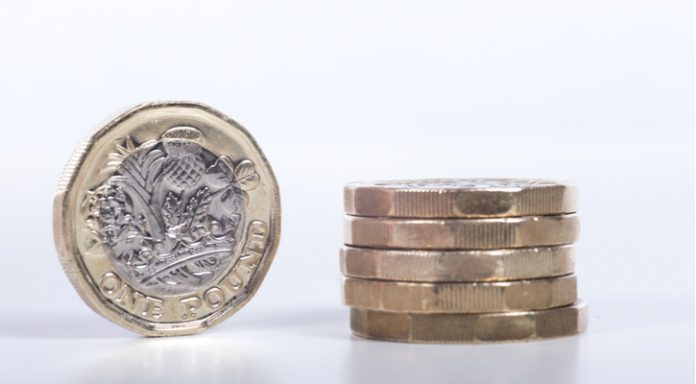The pound euro exchange rate traded at the lowest level so far this week on Thursday, as eurozone trade balance data boosted the euro. The pound euro rate fell to a low of €1.1161.
| What do these figures mean? |
|---|
|
When measuring the value of a pair of currencies, one set equals 1 unit and the other shows the current equivalent. As the market moves, the amount will vary from minute to minute. For example, it could be written: 1 GBP = 1.13990 EUR Here, £1 is equivalent to approximately €1.14. This specifically measures the pound’s worth against the euro. If the euro amount increases in this pairing, it’s positive for the pound. Or, if you were looking at it the other way around: 1 EUR = 0.87271 GBP In this example, €1 is equivalent to approximately £0.87. This measures the euro’s worth versus the British pound. If the sterling number gets larger, it’s good news for the euro. |
The pound was broadly stronger in the previous session, albeit weaker than the euro.
Investors cheered UK retail sales data which unexpectedly jumped higher in July thanks to England’s progression in the World Cup, warmer weather and summer discounts. UK retail sales increased 3.5% year on year in July, above the 2.5% that analysts had pencilled in. On a monthly basis, retail sales jumped 0.9%, significantly higher than the -0.6% decline in June.
Whilst this is encouraging news, retail sales figures are infamously volatile. With wages growth still sluggish and prices remaining elevated retail sales could struggle to maintain these levels once the cooler weather sets in.
There is no high impacting UK data due to be released today. Brexit could return to the forefront of investors’ minds weighing on the pound as the possibility of a no deal Brexit grows by the day. Credit agencies had previously been considering an orderly exit as the base case scenario; however, rating agency Fitch yesterday announced that this was no longer its view. It now sees a “disruptive, disorderly Brexit as a material and growing possibility”, comment which will weigh on demand for the pound.
| Why is a “soft” Brexit better for sterling than a “hard” Brexit? |
|---|
| A soft Brexit implies anything less than UK’s complete withdrawal from the EU. For example, it could mean the UK retains some form of membership to the European Union single market in exchange for some free movement of people, i.e. immigration. This is considered more positive than a “hard” Brexit, which is a full severance from the EU. The reason “soft” is considered more pound-friendly is because the economic impact would be lower. If there is less negative impact on the economy, foreign investors will continue to invest in the UK. As investment requires local currency, this increased demand for the pound then boosts its value. |
Strong Trade Balance Data Sends Euro Higher
The euro soared higher against its peers in the previous session, boosted by a large trade balance surplus. The latest trade balance data from the eurozone showed a surplus of €22.5 billion in June, higher than the €16.5 billion in May and well ahead of the €18 billion pencilled in by analysts. The strong figures lifted the euro.
| Why does strong economic data boost a country’s currency? |
|---|
| Solid economic indicators point to a strong economy. Strong economies have strong currencies because institutions look to invest in countries where growth prospects are high. These institutions require local currency to invest in the country, thus increasing demand and pushing up the money’s worth. So, when a country or region has good economic news, the value of the currency tends to rise. |
Also boosting the euro was a continued easing of the Lira crisis in Turkey. Qatar stepping in to offer financial support to Turkey in the region of $15 billion as calmed the markets and the lira continues to climb, reducing fears of bad loads and contagion to the European financial system.
Today data will once again be in focus with market participants looking towards Eurozone inflation data. Whilst analyst are expecting inflation to have increased year on year, they are expecting it to fall from 0.1% to -0.3% month. Weak inflation numbers mean a central bank is less likely to raise interest rates, therefore could hit the value of the euro.
This publication is provided for general information purposes only and is not intended to cover every aspect of the topics with which it deals. It is not intended to amount to advice on which you should rely. You must obtain professional or specialist advice before taking, or refraining from, any action on the basis of the content in this publication. The information in this publication does not constitute legal, tax or other professional advice from TransferWise Inc., Currency Live or its affiliates. Prior results do not guarantee a similar outcome. We make no representations, warranties or guarantees, whether express or implied, that the content in the publication is accurate, complete or up to date. Consult our risk warning page for more details.
This article was initially published on TransferWise.com from the same author. The content at Currency Live is the sole opinion of the authors and in no way reflects the views of TransferWise Inc.





